Third Annual Three Minute Thesis Competition presents an ‘incredibly diverse array of projects’ by CHC students
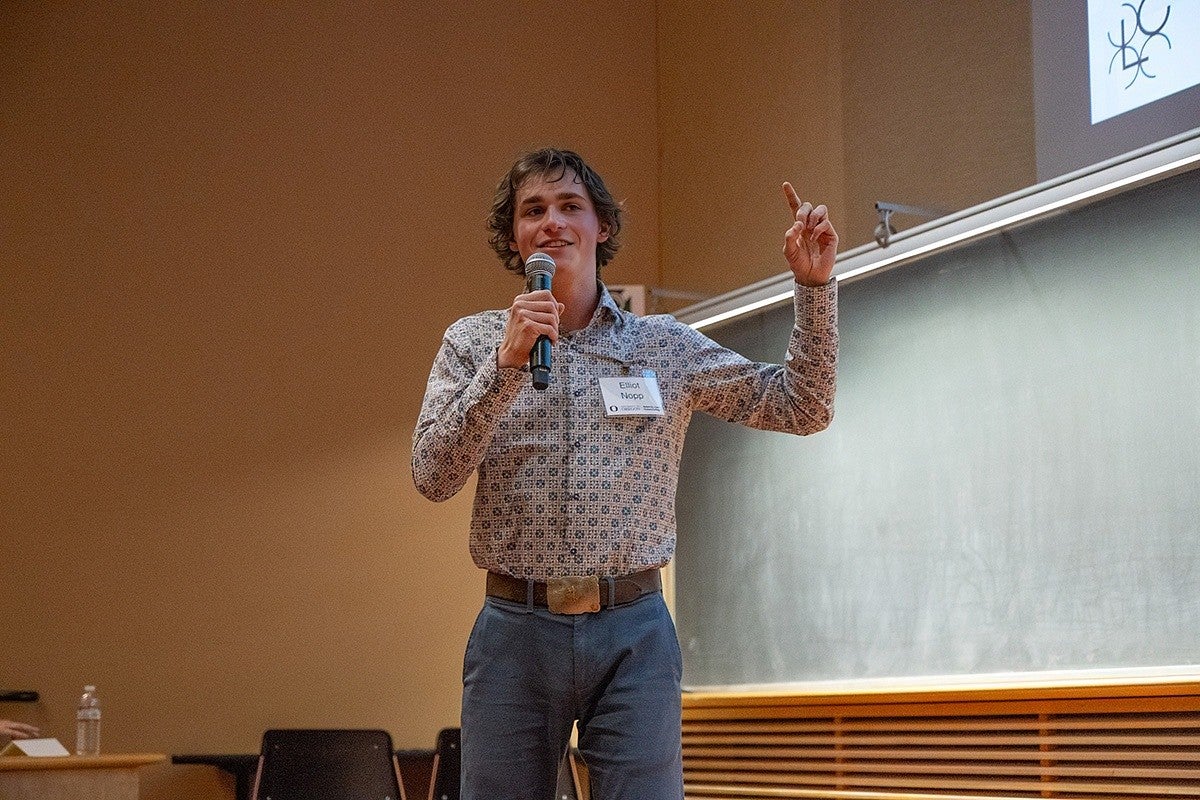
The Winners
1st Place ($1,000):
Elliot Nopp
Reimagining Space at the Lloyd Center
2nd Place Tie ($625 each):
Camila Hess-Neustadt
Immigration Salience and the Rise of the Swedish Populist Radical Right: Testing the Flash Potential Hypothesis
Kyla Schmitt
Describing the Relationship Between Prescribed Burns, Fungal Communities, and Understory Assemblages in Southern Willamette Valley Oak Savanna
People's Choice:
Ryan Walker
American English Speaker Attitudes Towards Unfamiliar Languages
Nearly 200 students, faculty, staff and a variety of honored guests jammed into one of the Lillis Hall auditoriums to see senior Elliot Nopp earn first-place honors in the Third Annual Clark Honors College Three Minute Thesis Competition on Thursday, May 1, 2025.
Nopp, a Planning, Public Policy, and Management major in the UO’s College of Design, gave the winning presentation on his CHC thesis topic, “Reimagining Space at the Lloyd Center.” In his presentation, Nopp conveyed how the once-popular and now nearly defunct Portland shopping mall could be transformed into a highly useable public space that caters to the entire community and brings people together.
His research analyzed a variety of factors about how the Lloyd Center, built on a roughly 29.3-acre swath of land in the heart of a vibrant neighborhood on the city’s northeast side, is now referred to as a “zombie mall.” While barely used and taking up a large space in the city, Nopp’s research on the Lloyd Center showed how it could easily be turned into a center for social programming, community engagement and the local food scene.
The mall’s accessibility, its potential for a variety of other uses – think sports and other mobile activities – and its space for comfortable seating would make it ideal for transformation, he said.
The CHC event – held in the first-floor classroom auditorium in the UO Lundquist College of Business – featured 10 student finalists who each had three minutes and one slide to fully explain their thesis projects to the audience. Nopp took home the top prize of $1,000.
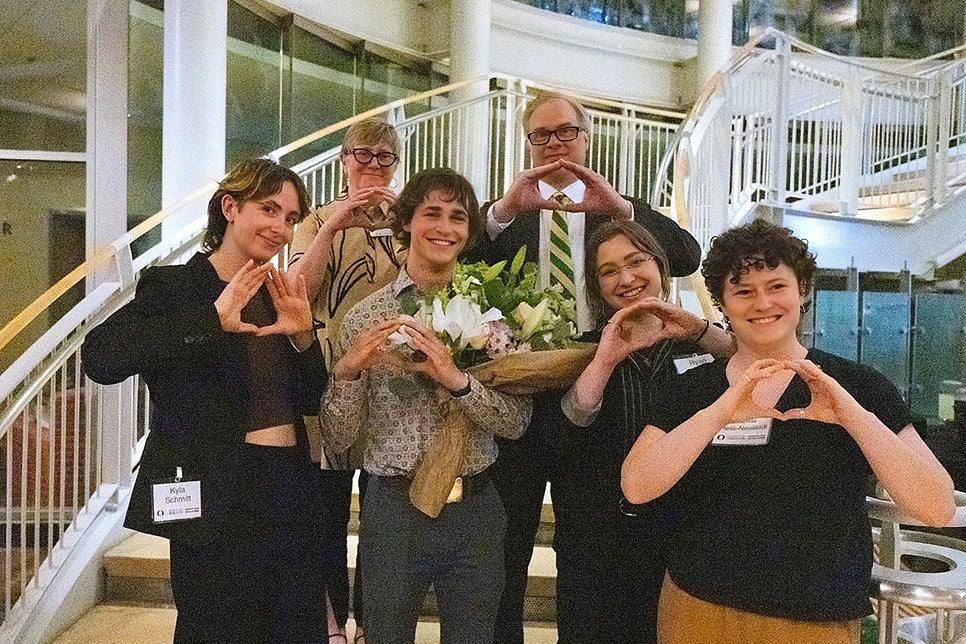
UO Provost and Senior Vice President Chris Long served as one of the seven judges for the event. He said he was impressed by the presentations of the 10 finalists. “I loved the opportunity to hear our students talk about their research in a format that combined rhetorical excellence with visual eloquence,” Long said. “It was wonderful to see how creative our students can be when constrained by the 3-minute thesis framework.
“Making knowledge accessible, impactful, and relevant beyond the academy is a critical skill for our students to learn,” he added. “Events like these and the training they provide help us amplify the University of Oregon’s voice and the amazing research our students are doing.”
“Making knowledge accessible, impactful, and relevant beyond the academy is a critical skill for our students to learn. Events like these and the training they provide help us amplify the University of Oregon’s voice and the amazing research our students are doing.”
Nopp, the first-place winner, was raised in Portland and attended Franklin High School. He said he’d always been fascinated by the Lloyd Center and wondered why city leaders hadn’t figured out a use for it that might benefit young people. “I pretty much thought there was a lack of understanding of what good gathering spaces mean for teenagers,” he said after the competition. “It really shows how uncreative we are at times. I want to help drive the thought process behind how we might do things differently; how do we make the space useable for the entire community?”
Nopp’s presentation featured a map of a portion of the mall, along with photos that detailed how to improve it. He walked the audience through the ways the mall could be reconfigured and discussed the impact on society from a planning and public policy standpoint. He said he made a point of practicing his delivery in a way that could hold an audience’s attention.
“I was a lot more nervous than I expected,” he said. “I took a lot of deep breaths and did some power posing. You make yourself look big. You say: ‘I got this.’ It does something to your brain to make you feel more powerful. Once I had the mic and control of the room, I definitely felt more comfortable when I got going.”
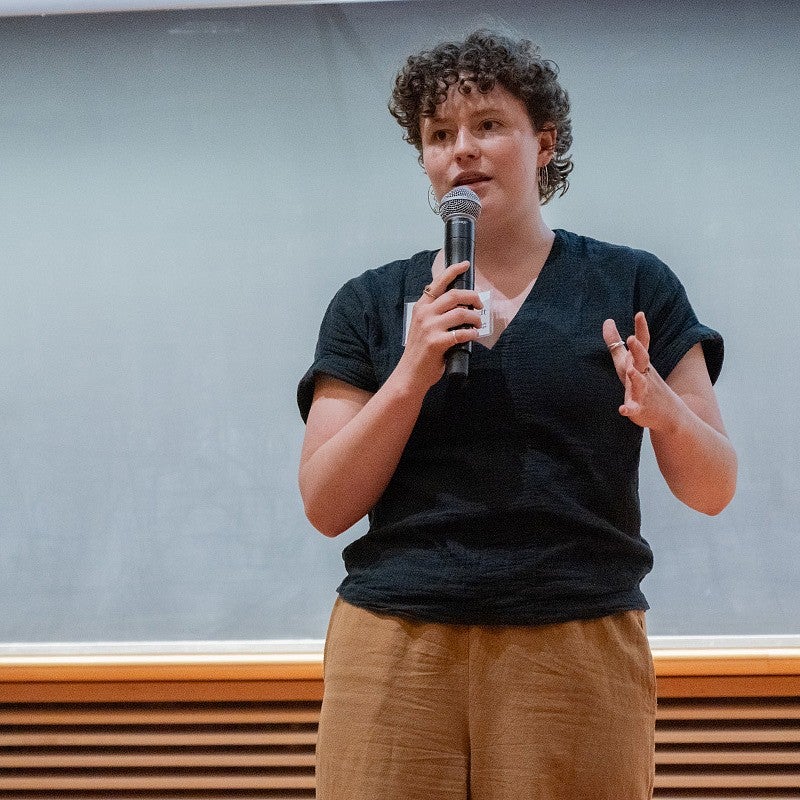
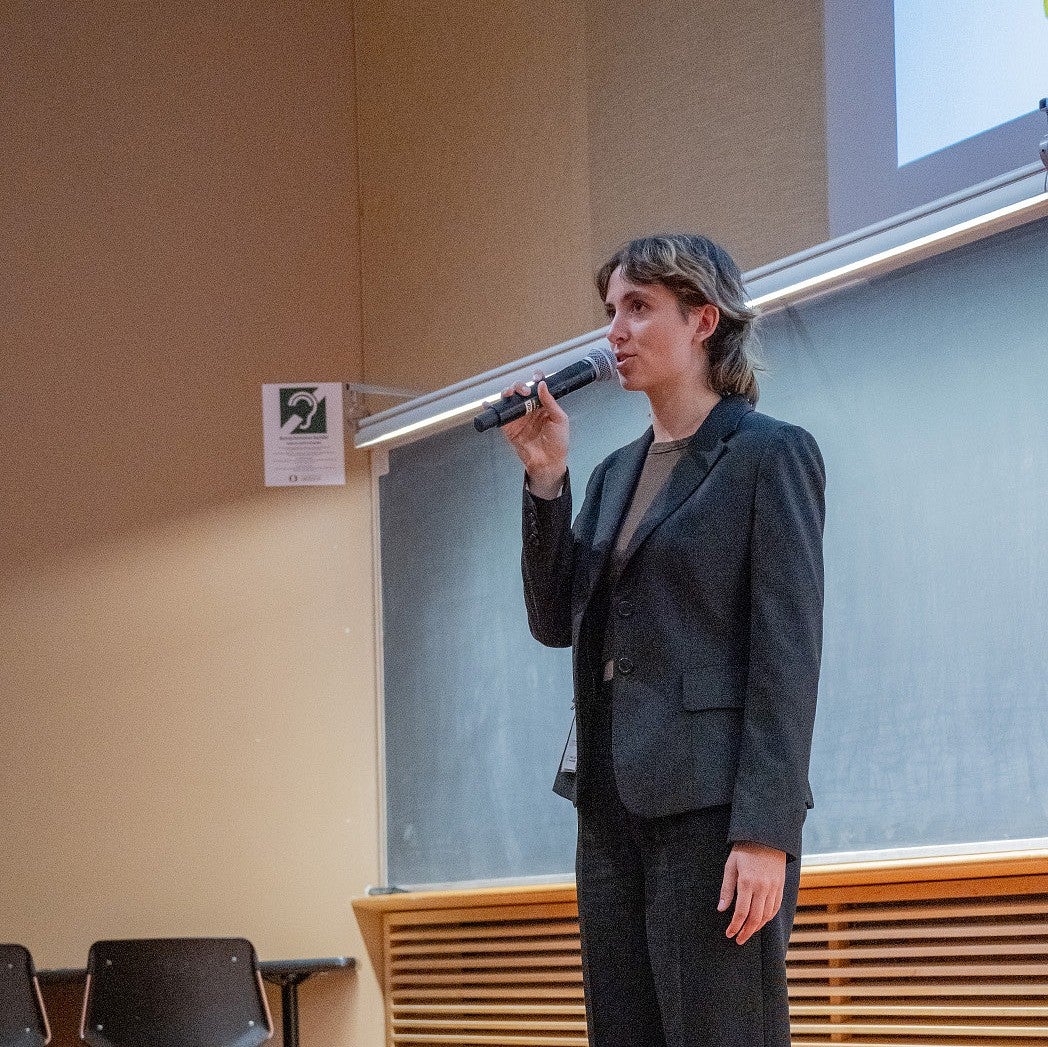
A panel of seven judges scored the finalists on their presentations. The judges took into account background and significance; research and implications; outcomes and impact; oration; language and delivery. They also considered audience enthusiasm, as well as the contents of the presenter slides.
CHC seniors Camila Hess-Neustadt and Kyla Schmitt tied for second in the competition and will split evenly the $750 second prize and the $500 third prize. Each took home $625.
Watch each of the 10 finalists give their presentations at the Three Minute Thesis Competition.
Hess-Neustadt, a psychology and global studies double major, gave a presentation called “Immigration Salience and the Rise of the Swedish Populist Radical Right: Testing the Flash Potential Hypothesis.” She talked about tracing the rise of right-wing populism and its links to immigration policy in Sweden and across Europe.
She saw the competition as a challenge but remained confident about how she would perform. “I think it went pretty well,” she said afterward, noting that the presentation wasn’t long enough to make her nervous. “I remembered the whole thing and that was a victory for me.
“The reality is that public speaking is a part of our lives, regardless. We invest so much time on our theses as Honors College students that it’s great to be able to practice in front of a supportive group of people. It was a great experience.”
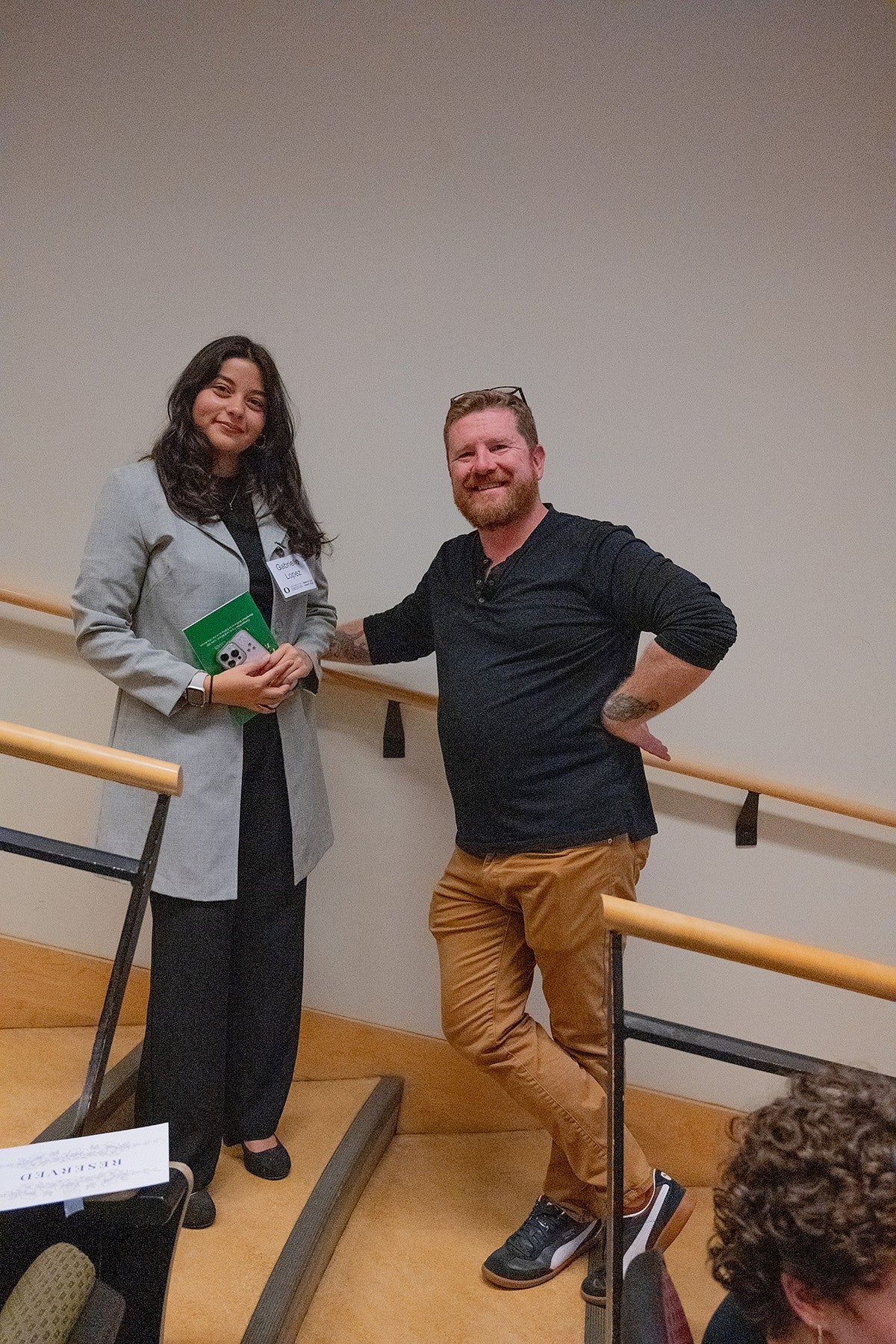
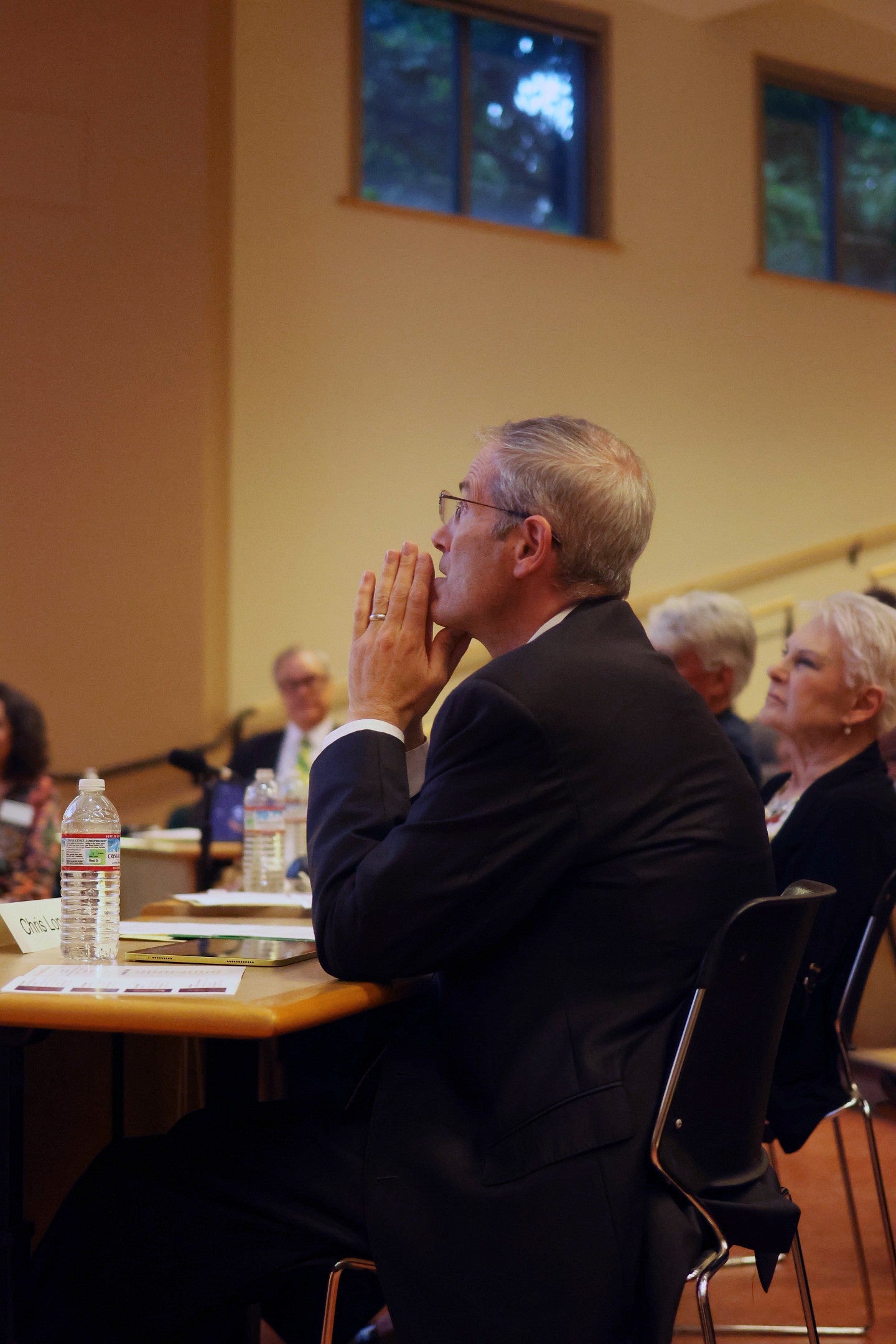
Schmitt, who is majoring in environmental science and humanities, credits her participation on the UO Forensics team with helping her finish as one of the top presenters at the 3MT competition. Her thesis, “Describing the Relationship Between Prescribed Burns, Fungal Communities, and Understory Assemblages in Southern Willamette Valley Oak Savanna,” tapped into research that saw Schmitt hunt down a variety of mushrooms for testing.
“Having the experience with competitive speaking definitely helps,” Schmitt said, noting her time as a debater. “I spent a lot of time practicing, but I got a cold earlier in the week and had a lingering cough. I was nervous about that but I knew I had to lock it down and relax. I operated a lot from muscle memory.”
She said she was fascinated to learn the diversity of fungal species in the Eugene area as she conducted her research. “There were definitely some surprises out there,” she recalled.
“I want to help drive the thought process behind how we might do things differently; how do we make the space useable for the entire community?”
CHC Dean Carol Stabile and her leadership team came up with a way to allow students to show off their critical thinking and speaking skills in a shortened version of the thesis project that all Honors College seniors must complete in order to graduate.
“I’m amazed by the incredibly diverse array of projects our students pursue for their theses,” Stabile said. “They conduct top-level research on topics they care deeply about. They all meet the challenge of excellence, and their research, their poise and their intent to make the world a better place are front and center.
“This was an amazing night and all the Honors College students who participated deserve congratulations,” Stabile said. “This is such an important community building event.”
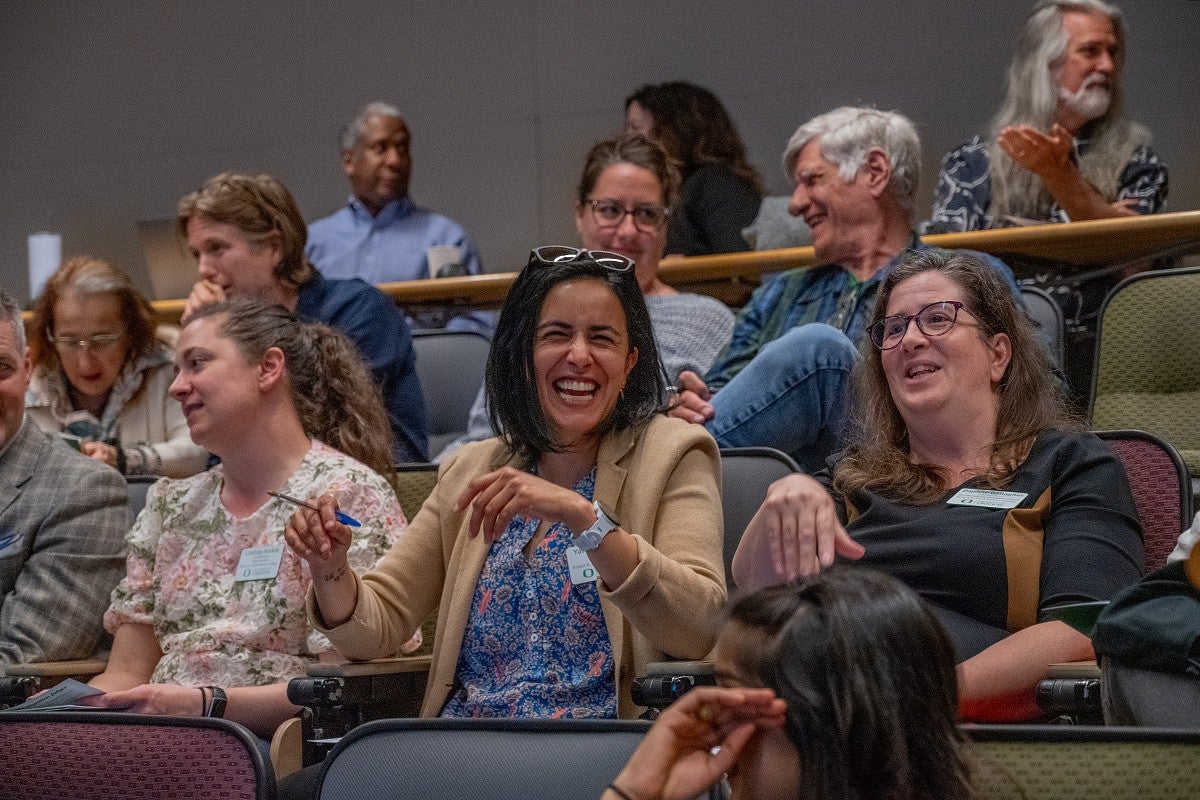
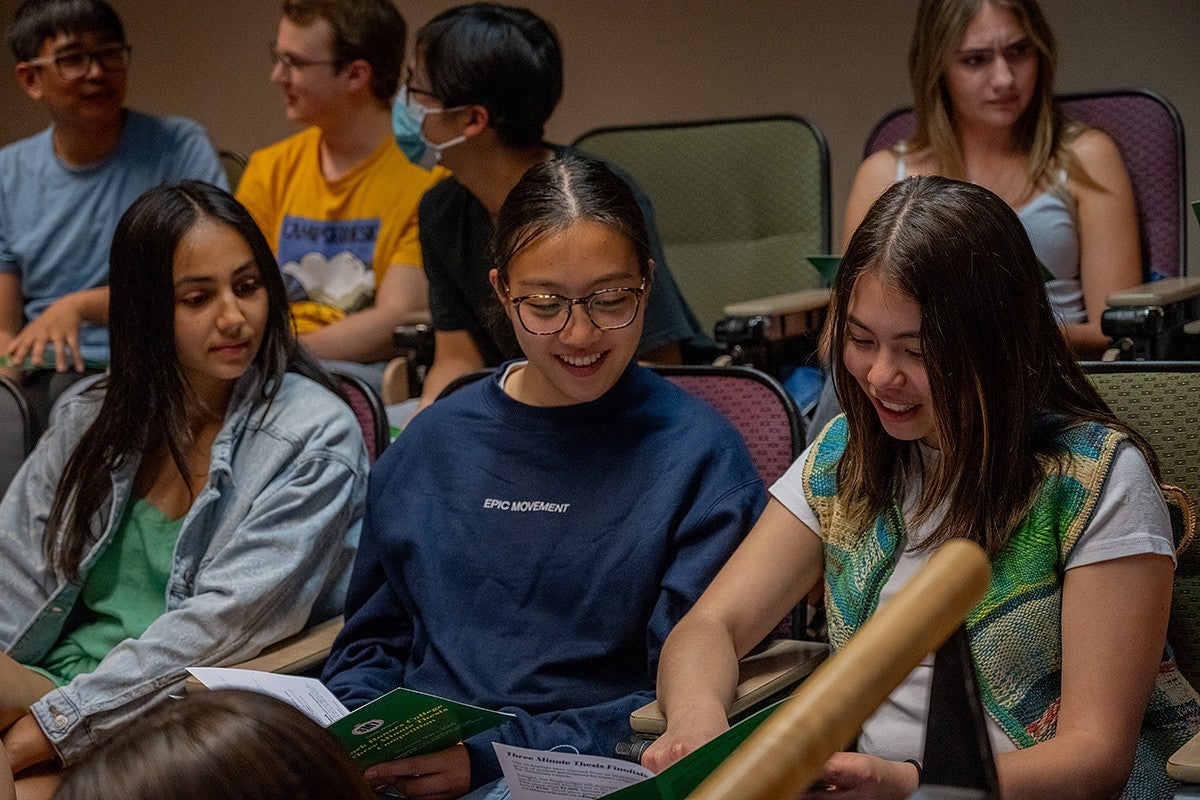
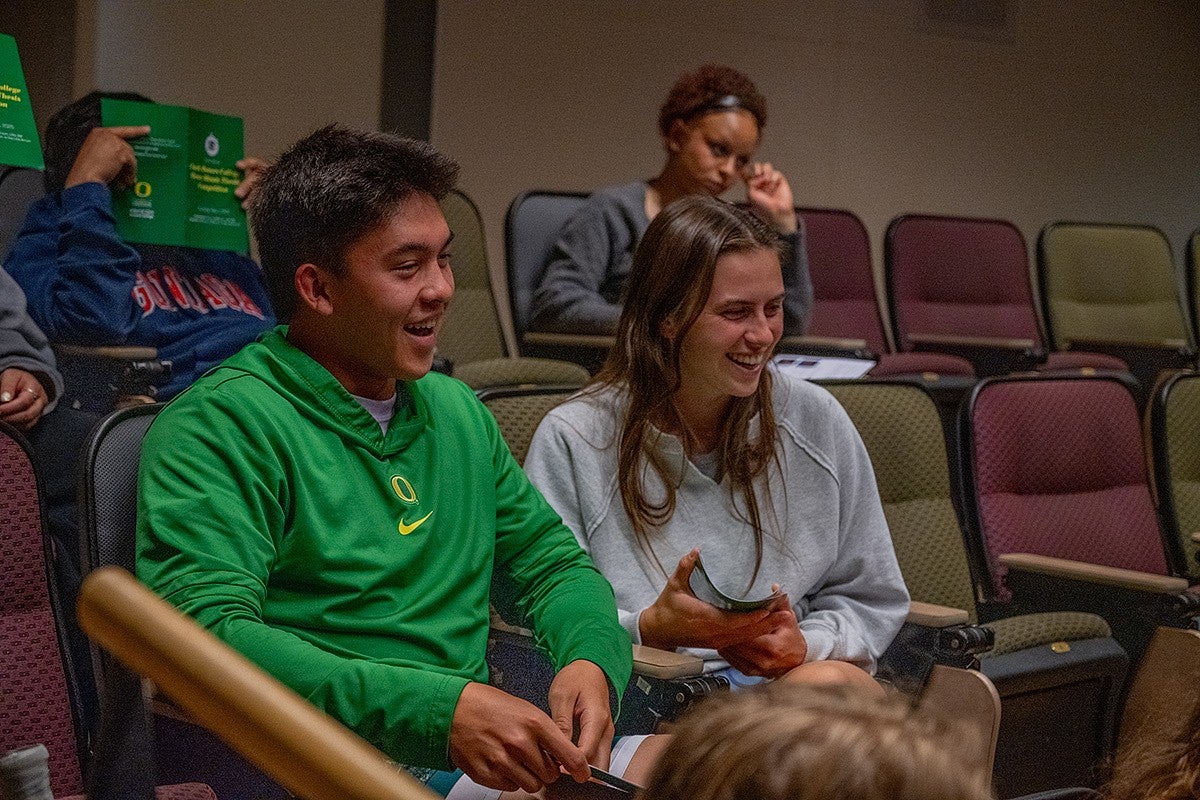
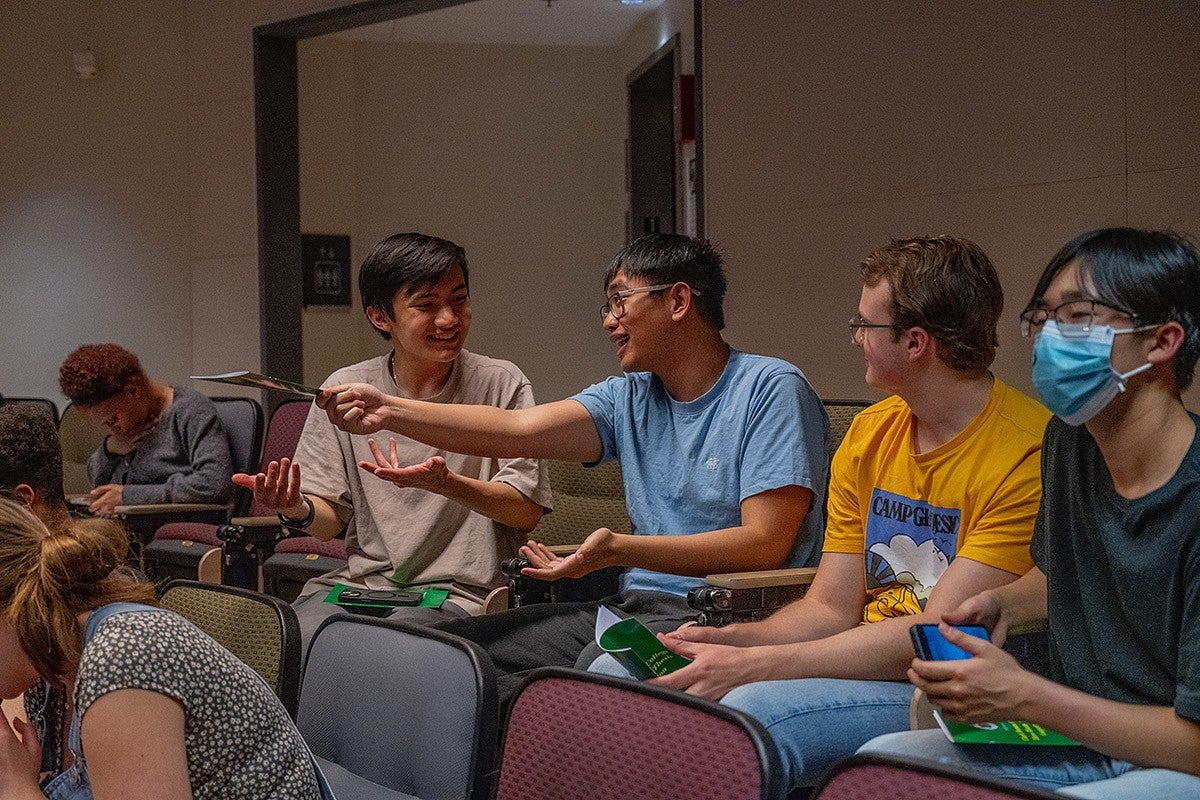
The other judges for the event besides Long were: former Multnomah County Judge and CHC donor Mary Overgaard; Vice Provost and University Librarian Alicia Salaz; Julie Tripp, former business reporter and columnist for The Oregonian and UO alum who supports CHC programs; Jim Shephard, an alum and longtime CHC supporter; Kenda Singer, an alum, a donor and a longtime supporter of many UO programs; and Mike Raymer, a UO Knight Professor of Liberal Arts and Sciences who teaches physics and supports the CHC.
Nopp credits the CHC and instructors like Casey Shoop with helping him meet the challenges of academic life in the Honors College. “He made me excited about college and challenged me in ways that helped me grow,” Nopp said. “What I love most about the Honors College is the ability to explore other themes and topics outside of your major. And I appreciate all the CHC students who are very dedicated and driven. It’s a very supportive space.”
He said he plans to move back to Portland after graduation in June. He said he’ll use his winnings to figure out “what I’m going to do next in life.”
That includes engaging with nonprofits and community groups who are dealing with funding issues and facing other hurdles, said Nopp. “I know I’m going to find ways to engage with people to create a better Portland.”
Hess-Neustadt said she doesn’t have any special plans to use her prize money. “I’m going to change the brake pads on my Honda CRV because it’s time to do it,” she said with a laugh. “This feels like an easy justification.”
Schmitt said she’ll be using her take to get a new iPhone after her current one got waterlogged when she tried to take an underwater photo of a newt. “I need a nicer camera because I really like to take pictures,” she said.
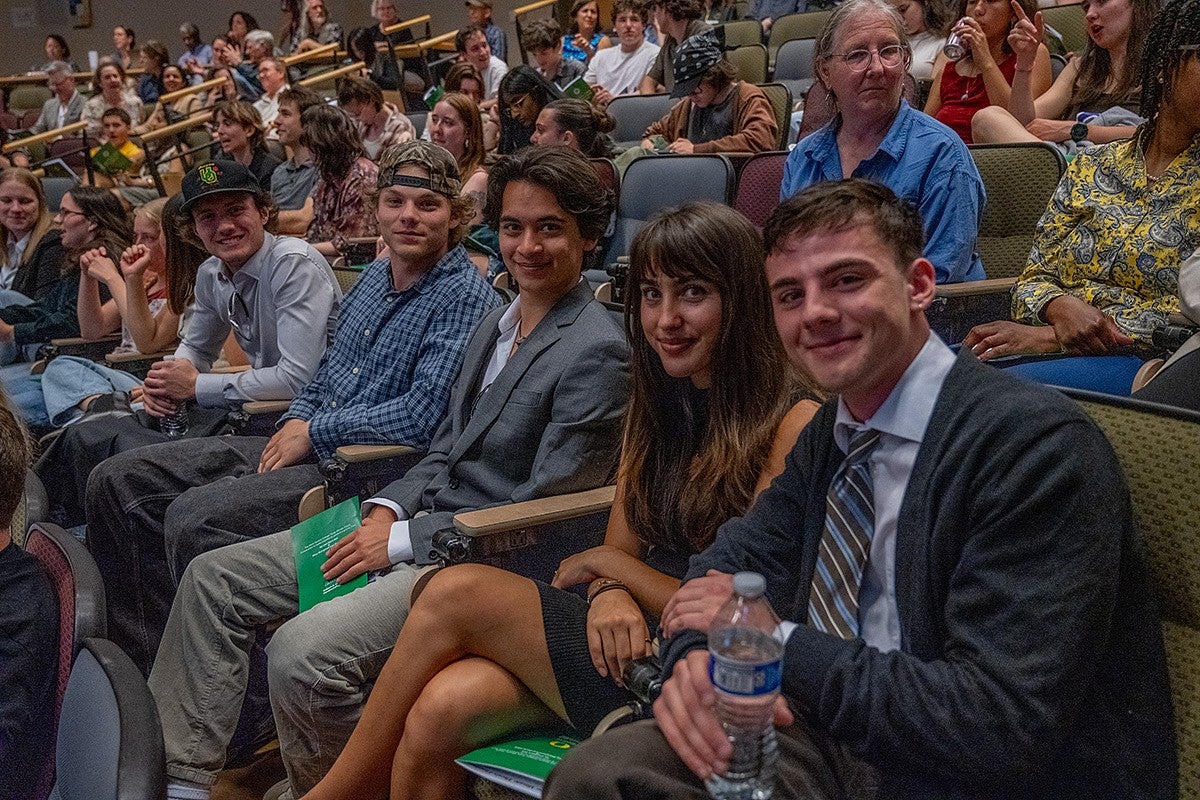
The 2025 CHC Three Minute Thesis finalists also included:
Aaron Gathrid
Major: Planning, Public Policy, and Management
Nurturing ROOTS: A Restorative Outdoor-Oriented Teaching System
Primary Thesis Advisor: Professor Patricia Lambert
Gabrielle Lopez
Major: Journalism
Borderlines and Headlines: Audience Reception to Migrant News in El Paso, Texas
Primary Thesis Advisor: Instructor Charlie Dietz
Victoreya McKissick
Major: Multidisciplinary Science
Investigating a Novel Pro-regenerative Therapeutic to Treat Volumetric Muscle Loss
Primary Thesis Advisor: Associate Professor Nick Willett
Charles Petrik
Major: Global Studies and Geography
The Formation of a Human Rights Center at the University of Oregon: An Objective Analysis of Institutional Change for Bridging Theory and Practice
Primary Thesis Advisor: Professor Emeritus David Frank
Kadyn Skipper
Major: Political Science
Plant Variety Protection Act and Agrobiodiversity Loss
Primary Thesis Advisor: Professor Alison Gash
Emily Sverdrup
Major: Chemistry
A Pro-Resolving Lipid Mediator for the Attenuation of Osteoarthritis Pathology
Primary Thesis Advisor: Associate Professor Nick Willett
